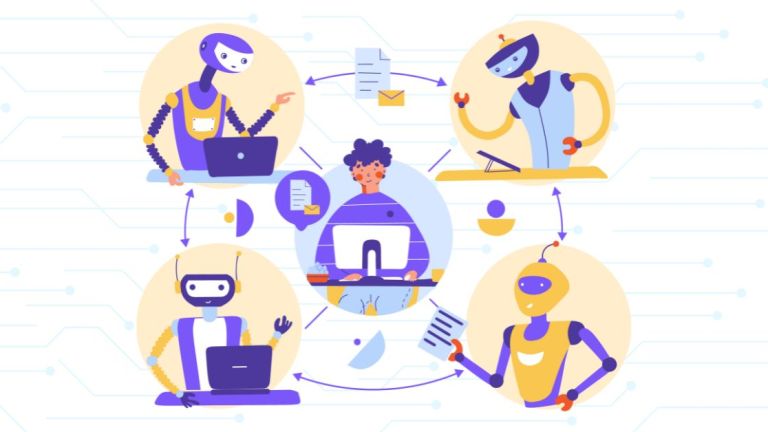24 August 2023
The traditional paradigms of teaching and learning are undergoing a remarkable shift, driven by the inexorable rise of AI. As the world hurtles towards an era where adaptability and critical thinking reign supreme, educators and learners alike find themselves at the intersection of possibility and innovation.
Gone are the days of a one-size-fits-all approach, where a single educator’s knowledge and delivery style dictated the classroom experience. The evolution of the learner-centred model challenges this notion, placing the student at the heart of the educational journey. Education is on the brink of a renaissance, one where customisation, personalisation, and engagement are elevated. Armed with AI’s unprecedented capabilities, teachers are empowered to take the learning experience to new heights.
A big barrier to employing learner-centred approaches is scale. The time and effort required to investigate each individual student, how they are learning, what they are interested in and tailoring it to them is not something teachers have room for. This is where the latest developments in AI step in to lend a hand.
Support for learner’s autonomy makes for a better learning environment
Why student-driven? At the core of the learner-centred approach lies a fundamental alignment with Deci and Ryan’s self-determination theory. This theory posits that individuals are inherently driven by three psychological needs: autonomy, competence, and relatedness. In much the same way, the learner-centred approach places these very needs at the forefront.
“Support for children’s autonomy makes for better parenting and classroom environments” as well as “understanding the perspective of children, appreciating and respecting them” according to Ryan.
By granting learners the autonomy to guide their own learning paths, fostering an environment where they can develop and showcase their competencies, and nurturing meaningful connections between students, educators, and the subject matter, educators effectively tap into the motivational forces.
Dr Bron Stuckey, Director of Innovative Educational Ideas, stresses the need to be more open to passion projects and things that the kids really care about and want to change, “When you care about something, you invest very heavily in it”.
In embracing a learner-centred framework, educators acknowledge the profound impact of autonomy-supportive environments on cultivating intrinsic motivation, leading to deeper engagement, sustained curiosity, and a genuine passion for learning that extends far beyond the confines of the classroom.
The learner-centred approach underscores the symbiotic relationship between fostering motivation and tailoring education to the individual, setting the stage for a transformative educational experience. Approaches can take the form of active learning, project-based learning, inquiry-based learning, case-based instructions, or discovery learning.
Is it possible to scale and reach every individual learner?
“I think this is where we do see huge potential from AI,” says Rose Luckin, Professor of Learner Centred Design at University College London (UCL) Knowledge Lab. For Luckin, it’s about being able to orchestrate different ways tech can support learner-centric processes and make it possible realistically, and practically for teachers.
AI stands as a formidable ally in executing and delivering learner-centred design and pedagogy, revolutionising the way education is imparted and experienced. Through AI-driven adaptive learning platforms, personalised content recommendations, and intelligent data analytics, the potential to tailor educational journeys to individual needs and preferences is unparalleled.
Adaptive learning systems, powered by AI algorithms, adeptly assess each learner’s progress and comprehension levels, dynamically adjusting the pace and complexity of the material to ensure optimal engagement. This level of personalised attention not only nurtures a sense of autonomy but also addresses the diverse competencies within a classroom.
However, this promising fusion of AI and learner-centred pedagogy is not without challenges. Concerns around data privacy, algorithmic bias, and the potential dehumanisation of the learning experience must be navigated with care. Striking the right balance between harnessing AI’s capabilities and preserving the irreplaceable human element of education remains an ongoing discourse.
While AI empowers learner-centred approaches with unprecedented scalability and personalisation, ethical considerations must guide its integration to ensure that the core values of education are not compromised in the process.
Check out our full interview sessions with Professor Rose Luckin and Dr Bronwyn Stuckey here.






